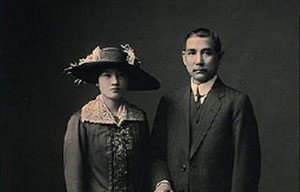Anti-graft body: no relief for fugitives overseas
By Zhang Yi (China Daily) Updated: 2016-08-24 09:02
One-third of the people listed by Interpol as China's 100 most-wanted corrupt officials and businesspeople have returned to the country to face justice and atone for their crimes. Zhang Yi reports.
"I feel ashamed of what I did, stealing public funds and fleeing to Singapore to avoid jail time in China. I don't deserve to be a Chinese citizen. I realize there is no point living a miserable life in a foreign country, because the rest of my days would be a mere existence on earth."
Those words, from a confessional letter written by Li Huabo, No 2 on a list of arrest warrants for China's 100 most-wanted economic fugitives published by Interpol last year, were made public for the first time at the weekend.
Li returned to China in May last year, after serving 15 months in a Singaporean jail for depositing stolen money in bank accounts in the island state.
The 55-year-old former official at the finance bureau in Poyang county, Jiangxi province, is suspected of embezzling 94 million yuan ($14 million) in government funds. In the confession, he said he felt relieved when he agreed to return to China and turn himself in.
He is just one of 33 people on the Interpol list who have returned to China to face the music. Thanks to a global dragnet, the country's most-wanted economic fugitives are discovering that they can run, but in the end, they will be brought to justice.
According to the Central Commission for Discipline Inspection, the nation's top anti-graft body, to date, one-third of the fugitives on the Interpol list have now returned to China, either by force or of their own volition.
Yang Xiuzhu is the latest name to be crossed off Interpol's list. Last month, Yang - who is accused of accepting bribes worth 250 million yuan and left the country in 2003 - abandoned attempts to gain political asylum in the United States, and through her lawyer, expressed a wish to return to China as soon as possible for treatment for an undisclosed medical condition.
The 70-year-old former official in the southeastern province of Zhejiang was apprehended in 2014, when US authorities charged her with entering the country illegally. Since then, she has been held at an immigration detention center in Houston, Texas.
Sun Xin, the No 1 fugitive on Interpol's list, was tried shortly after he returned in June last year. Although Sun faced a maximum sentence of life imprisonment after being found guilty of embezzling 20 million yuan of public funds, he was given a lenient sentence of 14 and a half years in jail.
Crackdown intensifies
In the first half of this year, 381 other fugitives returned from 40 countries, leading to the recovery of 1.24 billion yuan in illicit assets.
In 2014, China's efforts to net overseas fugitives picked up steam, and a national coordination office was established on Oct 10 of the same year.
Led by Huang Shuxian, deputy head of the CCDI, the office comprises senior officials from eight central government bodies, including the Ministry of State Security, the Ministry of Foreign Affairs, the People's Bank of China and the country's top judicial bodies.
The CCDI also set up an international cooperation department in 2014, to better facilitate operations against fugitives overseas. The Ministry of Public Security launched a special operation codenamed "Fox Hunt", while the Supreme People's Procuratorate began an operation targeting people who were set to be tried for dereliction of duty but absconded overseas before their case could come to court.
Last year, the CCDI started "Skynet", a program to coordinate efforts to bring errant fugitives to justice.
"Suspected government officials and crooked businesspeople in the private sector are on the Interpol list. Those who worked for State-run departments or enterprises have chosen to hide in economically advanced countries, such as the US, Canada and New Zealand, because they can access a favorable living environment and a well-rounded legal system which they believe will favor their interests," said Huang Feng, a professor of international criminal law at Beijing Normal University.
Huang said prospective fugitives plan their disappearances long in advance, and in some cases, they spend years making preparations to flee.
"Before they are targeted as corruption suspects, they apply for immigrant status for their families and obtain permanent resident status in another country," Huang said. "Then they launder the illicit money and move it offshore."
Searches continue
This year, there has been no letup in the efforts to net fugitives overseas. Cai Wei, deputy head of the CCDI's international cooperation department, said the commission will announce a second batch of names subject to Interpol's intervention in May.
However, the anti-graft authorities are looking for more than just the 100 most-wanted fugitives on the Interpol list.
Cai underscored the need for efficient work practices at all levels of anti-graft work, and urged improvements in the suspects' information system, more-stringent customs checks and stronger measures to freeze illicit assets.
At the international level, by the end of last month, China and 71 countries had signed treaties related to judicial assistance and extradition, plus combating separatism, extremism and terrorism.
"It's been encouraging to see China signing an average of five new treaties related to judicial assistance with other countries every year in the past decade," Huang said. "In the years to come, the anti-corruption authorities are likely to require international assistance.
"The judicial departments have a long way to go in stepping up international collaboration. At the moment, it's important for justice officers to become familiar with international rules and procedures in judicial cooperation, so they will become more competent and more efficient at netting fugitives overseas," he said.
- Wraps come off design of Mars probe
- 900 Malaysians check out China's high-speed rail
- Chinese 'Red Notice' fugitive hit with largest forfeiture in NZ
- Li: Infrastructure boost planned to aid rural Jiangxi
- Rules detailed for social organizations
- School to pay salary of teacher who died
- Xi: Public health should underpin all govt strategies
- Female sci-fi writer wins Hugo accolade
- Spending patterns show shift to healthy lives
- Nation's next generation of missiles to be highly flexible










